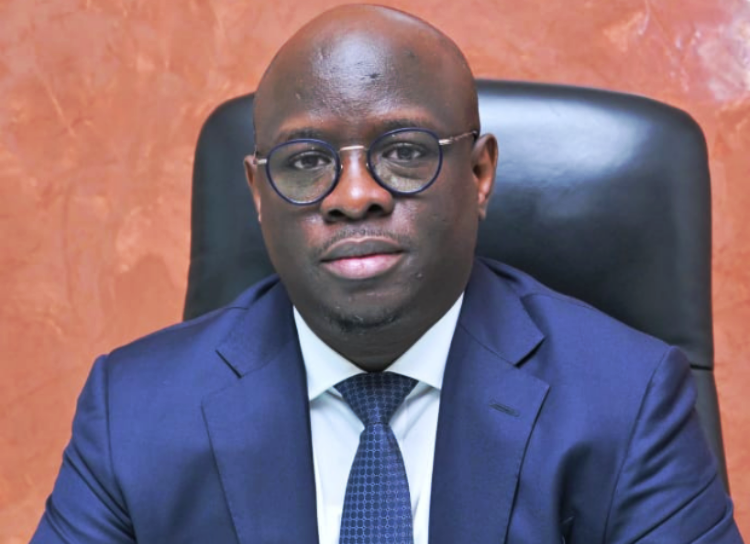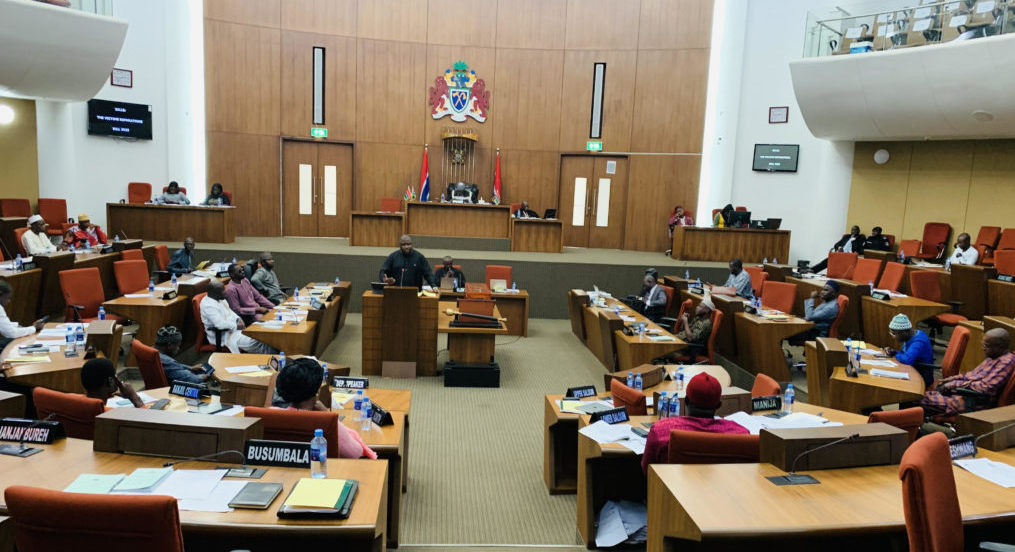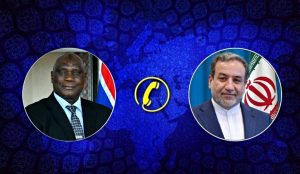Gambiaj.com – (Banjul, The Gambia) – The debate over The Gambia’s 2024 draft constitution has exposed deep divisions within the National Assembly, with a number of parliamentarians strongly opposing its progression, citing a lack of public trust, political manipulation, and concerns over inclusivity.
During the second reading of the bill, several Members of Parliament (MPs) rejected the draft outright, casting doubt on its legitimacy and criticizing the process leading to its formulation.
Hon. Sulayman Saho, United Democratic Party (UDP) member for Badibu Central, was unequivocal in his rejection of the bill.
He argued that the public no longer trusts the constitutional process and questioned whether passing the draft would ultimately serve the people’s interests. “We cannot trust that if it passes this stage, the majority will do the needful,” he warned, concluding that the draft lacks the democratic foundation necessary for support.
Similar sentiments were echoed by other UDP lawmakers. Hon. Modou Lamin Biram Bah, member for Banjul North, cited consultations with his constituents, who, he claimed, overwhelmingly opposed the draft.
“As their representative, I cannot support the bill to pass,” he declared, suggesting that the draft’s flaws outweigh its benefits. Hon. Assan Touray of Bakau went further, stating, “I am one hundred percent against this bill passing,” as he criticized what he saw as an exclusionary drafting process.
Independent MPs from the Foni region also stood firmly against the bill. Hon. Pa Dembo Sanneh of Foni Bondali dismissed the draft outright, declaring, “My people asked me to throw it away.” Hon. Kebba T. Sanneh of Foni Jarrol used even stronger language, vowing to “bury the draft constitution six feet deep.”
Critics also questioned the motives behind the draft’s revival. Hon. Muhammed Kanteh, independent member for Busumbala, said the 2020 draft better reflected the genuine will of Gambians.
He accused the current process of being politically driven and criticized references to foreign mediators like Nigeria’s former President Goodluck Jonathan. “You cannot waste our time with Goodluck Jonathan or any other eminent person,” he said, while affirming the opposition’s willingness to engage in dialogue for a fairer outcome.
Despite the strong opposition, some lawmakers defended the draft, emphasizing the need for constructive engagement. Hon. Abdoulie Njai, Independent MP for Banjul Central, cited Afrobarometer findings showing strong public support for a new constitution.
He argued that moving the draft forward would provide an opportunity for meaningful revisions to better align with public expectations. “Allowing the bill to proceed will sanitize the draft,” Njai said.
Hon. Musa Cham, representing the People’s Democratic Organisation for Independence and Socialism (PDOIS) for Serrekunda, also urged his colleagues to rise above political pressures and personal interests.
He acknowledged the difficulties MPs face, particularly those who rely on political patrons, but stressed that lawmakers have a national duty to act in the public’s best interest.
Supporting the draft from the ruling National People’s Party (NPP), Hon. Bakary Kora of Upper Fulladu West emphasized the need for term limits and democratic checks. He called for the draft to proceed to the consideration stage, warning that failure to adopt it could leave The Gambia vulnerable to authoritarian tendencies.
High Stakes in The Gambia’s Long-Running Constitutional Saga
The polarized debate in parliament reflects a broader national dilemma: how to reconcile widespread public demand for a new constitution with political realities inside the National Assembly.
While many Gambians have expressed frustration over the country’s outdated 1997 constitution, MPs remain at odds over the legitimacy of the draft and the process itself.
Opposition MPs, particularly from the UDP and some independent ranks, believe the draft fails to adequately reflect the aspirations of ordinary citizens and argue that it is tainted by political influence.
Their rejection of the bill highlights growing skepticism toward government-led constitutional efforts and raises concerns about whether any draft can secure the required parliamentary majority under current conditions.
On the other hand, supporters of the draft argue that allowing it to proceed does not guarantee final approval but creates space for further debate and amendments. They warn that blocking it at this stage risks perpetuating constitutional stagnation and undermining democratic reforms, such as presidential term limits.
Ultimately, this clash reveals the complex interplay between public sentiment, party politics, and legislative dynamics in The Gambia’s long-running constitutional saga. The stakes are high—both for the country’s democratic future and the credibility of its political institutions.
Whether this draft will survive the next stage or join its predecessors in the political graveyard remains to be seen. But what is clear is that The Gambia’s constitutional journey is far from over.










